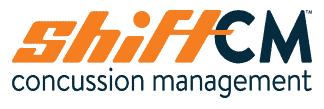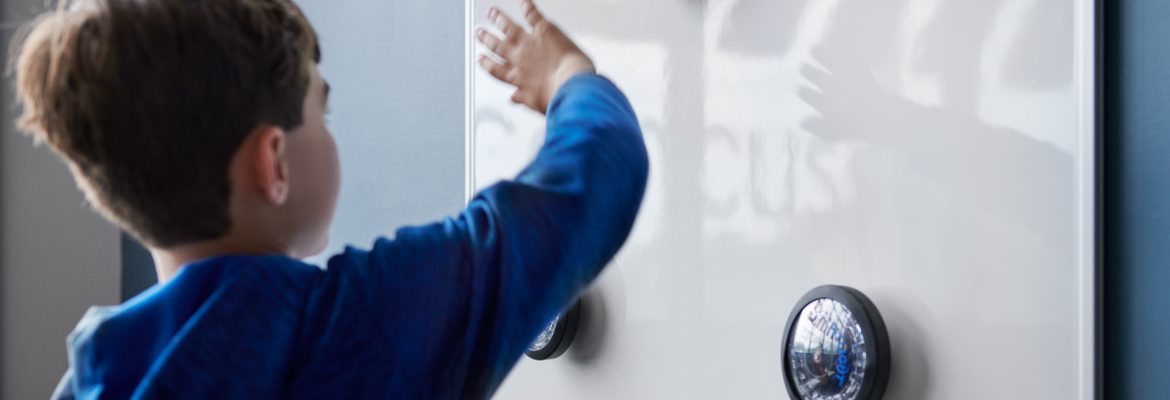Concussion and Cognition
After a concussion, cognitive abilities can be affected in various ways, depending on the nature of the injury and individual differences. This is commonly seen in people with concussions at all ages. Most of these symptoms resolve slowly as the patient recovers.
Common Impacts of Concussion on Cognitive Abilities
- Memory: concussions affect mostly short-term memory. Individuals may experience difficulty remembering recent events or forming new memories (Covassin & Elbin, 2010). However, long-term memory should mostly remain unchanged.
- Attention and Concentration: concussions can impair attention and concentration, making it hard to focus on a task for an extended period or switch attention between tasks (Covassin & Elbin, 2010). The starting and stopping of a task can also be impacted.
- Processing Speed: cognitive processing speed may decrease after a concussion, meaning it takes longer to understand and respond to information. Many people describe this as feeling ‘slowed down.’
- Executive Functioning: This includes skills such as planning, organizing, problem-solving, and decision-making. Concussions can disrupt these functions, leading to difficulty managing tasks and making decisions (Covassin & Elbin, 2010).
- Language and Communication: Some people may experience difficulties with language, such as finding the right words or understanding complex sentences (Hallock et al., 2023).
- Visual-Spatial Skills: concussions can impact visual processing and spatial awareness, affecting reading, driving or navigating through space.
- Emotional and Behaviour Changes: Concussions can also affect mood and behaviour, leading to symptoms such as irritability, anxiety, depression or mood swings.
Identifying Cognitive Symptoms with Concussion
Identifying cognitive symptoms resulting from concussions typically involves a comprehensive evaluation by a medical professional, often a neurologist, occupational therapist or a healthcare provider specializing in concussion care. A cognitive-focused assessment may include the following:
- Medical History: The health provider will ask about the injury’s circumstances, including any loss of consciousness, symptoms experienced immediately after the injury, and any previous concussions. Specifically inquiring about any cognitive complaints before and after the concussion. In addition to cognitive health related to family history.
- Symptom Assessment: The health provider will inquire about symptoms such as headaches, dizziness, nausea, confusion, memory problems,
- difficulty concentrating, sensitivity to light or noise, and changes in mood or behaviour.
- Cognitive tests: Various tests may be administered to assess memory, attention, processing speed, and executive function. These tests help to evaluate the extent of cognitive impairment and track recovery over time. These can include imPACT or Creyos (MORE ON THIS BELOW).
- Neuroimaging: in some cases, tests such as CT or MRI scans may be ordered to rule out more severe brain injuries affecting cognitive ability. However, this would be a more severe injury than a concussion.
If any of these cognitive-focused assessments are flagged for being positive, your healthcare provider will develop a comprehensive multidisciplinary treatment plan that may include an occupational therapist, psychotherapist, speech pathologist, or physical therapist. These healthcare providers each will tackle a specific aspect of the concussion treatment related to cognitive deficits.
Computerized Cognitive Tests
imPACT: Post-Injury Testing
Impact is a computerized tool used in concussion baseline testing and post-injury testing. Post-injury testing measures the same cognitive areas as baseline testing.
Healthcare providers can use a post-injury test to understand a patient’s cognitive functioning after a concussion. A post-injury clinical report is compared to a patient’s baseline (if there is one) to show cognitive function and reaction time deficits. This will better inform what treatment is needed and when they are fully cleared to return to sport or full activities.
Post-injury testing can still be used if a test taker doesn’t have a baseline. This is thanks to normative data on imPACT, which provides average scores within an age range. Trained healthcare providers do post-injury testing. They’ll use it to develop an appropriate treatment plan to provide the most efficient recovery pattern.
For imPACT, there are adult and pediatric tests for those under 12. This is a more game-like, child-friendly format, typically done on an iPad.
To learn more about imPACT: https://impacttest.com/
Creyos
Creyos is an online cognitive supplementary tool. It assesses cognitive ability in many conditions, not just for concussions. It is based on 12 core tasks of cognitive function (Pasqualotto et al., 2024).
Creyos measures patient scores for each task and compares them to demographic norms. Each score is accompanied by a task description and examples that compare to demographic norms that measure cognitive abilities (Pasqualotto et al., 2024).
Healthcare practitioners can administer the Creyos assessment to see if objective cognitive deficits are flagged. This is done at home via a link sent to your email. If objective finindgs are found, this will guide the treatment plan in focusing on these specific areas. This may also include a referral to an occupational therapist or other healthcare provider.
To learn more about Creyos: https://creyos.com/
Potential Treatment for Cognitive Symptoms
Treatment for cognitive issues following a concussion typically involves a multi-disciplinary approach tailored to the individual’s symptoms and needs. Some standard components can be:
- Rest and Activity Management: Initially, rest is recommended to allow the brain some short-term recovery. Gradual return to daily activities and cognitive tasks is then introduced under the guidance of a healthcare professional.
- Proper Sleep Hygiene: having good quality sleep with a set bedtime and wake-up time to regular the circadian rhythm is essential. Hence, the brain gets into all stages of sleep to enable proper cognitive recovery. This includes avoiding daytime napping and returning to your usual sleep schedule.
- Cognitive Rehabilitation: This involves exercises and strategies to improve memory, attention, and executive function. It may include activities like puzzles, memory games, and structured tasks to help rebuild cognitive skills. An occupational therapist often guides this.
- Physical Therapy: Physical therapy may be beneficial if physical symptoms accompany the concussion, such as balance or coordination problems, to help rehab these systems. This is helpful on the cognitive side since if more energy is devoted to balance or the visual system, this can take away from the energy needed for cognitive tasks.
- Psychotherapy: Cognitive complaints can be accompanied by emotional challenges such as anxiety, depression, or irritability. Therapy can provide coping strategies and support for managing these issues. This is important since any emotional challenges can amplify concussion symptoms in most people.
- Education and Counseling: Patients and their families benefit from education about concussion recovery and coping strategies. Counselling can address concerns and facilitate adjustment to any ongoing symptoms. This will foster a better understanding of what their loved one is going through so that they can have better support from those around them.
- Gradual Return to Activities: Once symptoms have improved, a gradual return to work, school, and physical activity is typically recommended. This should be done under the guidance of a healthcare professional to prevent setbacks and ensure a gradual cognitive increase.
Conclusion
Cognitive complaints are not uncommon with concussions, and most symptoms of memory problems, focus issues, and word-finding difficulties do recover with time as the concussion heals.
However, if symptoms are lingering longer than expected, get an assessment by a concussion-specific healthcare provider to assist with your recovery. At Shift Concussion Management, we are well-versed in guiding you in your concussion recovery related to cognitive concerns.
References
Covassin, T., & Elbin, R. J. (2010). The cognitive effects and decrements following concussion. Open Access Journal of Sports Medicine, 1, 55-61. https://doi.org/10.2147/oajsm.s6919
Hallock, H., Mantwill, M., Vajkoczy, P., Wolfarth, B., Reinsberge, C., Lampit, A., & Finke, C. (2023). SPorts Related Concussion a Cognitive Perspective. Neurology Clinical Practice, 13 (2). https://doi.org/10.1212/CPJ.0000000000200140
Pasqualotto, A., Cochrane, A., Bavelier, D., & Altarelli, I. (2024). A novel task and methods to evaluate inter-individual variation in audio-visual associative learning. Cognition, 242, 105658. https://doi.org/10.1016/j.cognition.2023.105658


Leave a Reply